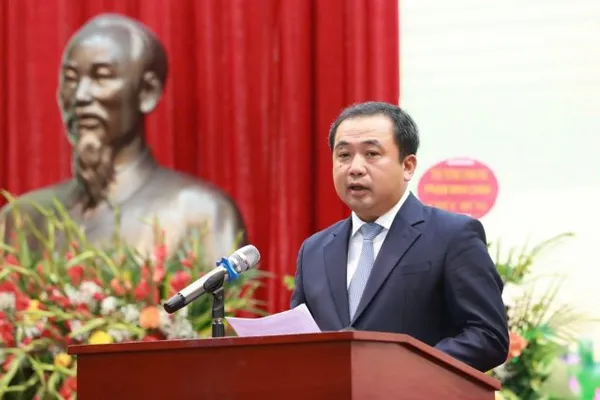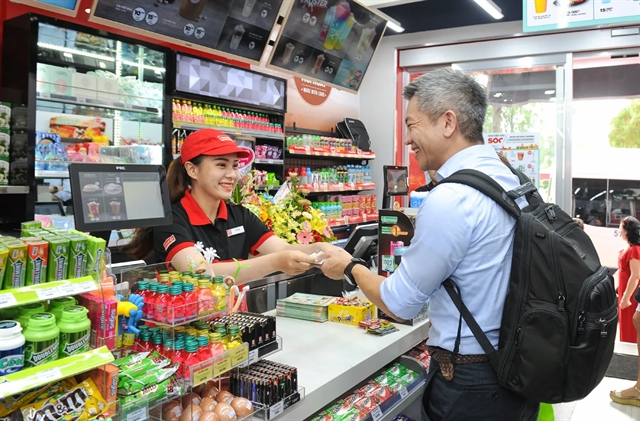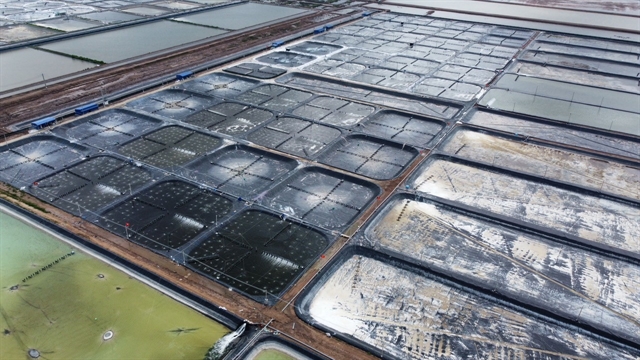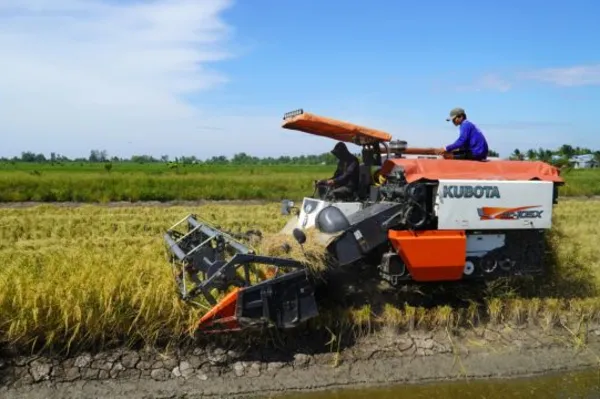 Society
Society
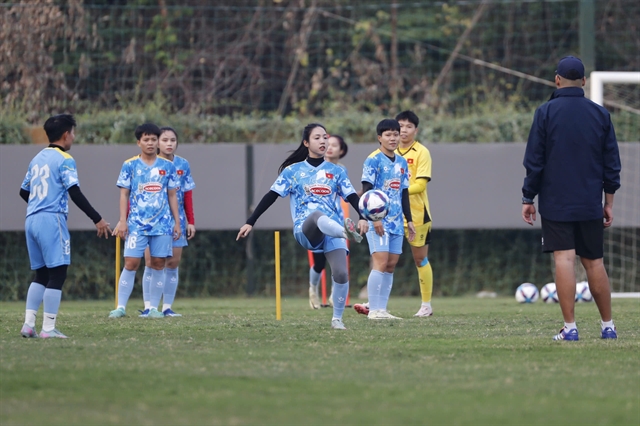
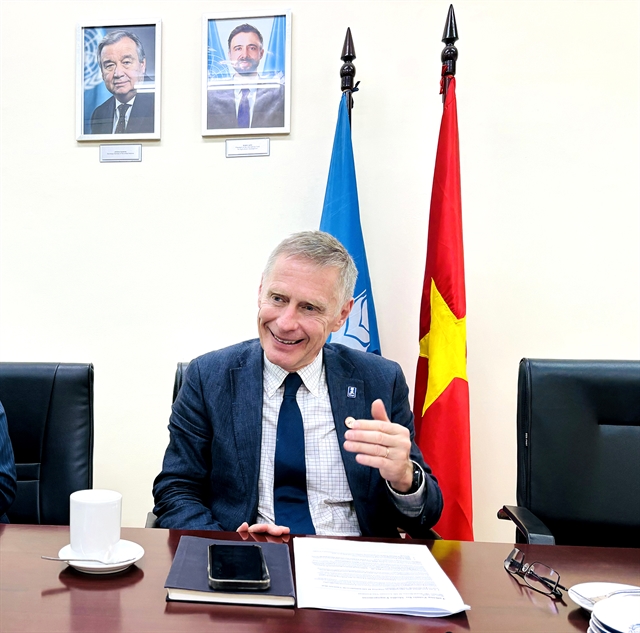 |
| Donal Brown, Associate Vice-President of the International Fund for Agricultural Development spoke to Việt Nam News on Wednesday. VNS Photo Khánh Dương |
Việt Nam News reporter Khánh Dương spoke to Donal Brown, Associate Vice-President of the International Fund for Agricultural Development (IFAD) on climate-resilient smart agriculture, on the occasion of his attendance at the fourth Partnership for Green Growth and the Global Goals 2030 (P4G) Summit in Hà Nội.
What is the significance of IFAD’s participation in the 2025 P4G? What are you going to bring to the summit?
The P4G Summit is a very important international meeting. We're very grateful to the Government of Việt Nam for hosting it.
From IFAD’s perspective, what we think we can commit to is we have a lot of experience in how to ensure you build resilient and inclusive food systems.
If you want food security, if you want sustainable food systems, you also very much need to include small farmers.
When you look at places like Asia, even more of it is produced by small farmers, so ensuring that the voice and the perspectives of small farmers and rural communities are part of this discussion, bringing our experiences is our key contribution.
In IFAD, we talk about the first mile. What we mean is that development starts with the small farmers in the first mile. What we try and do is make sure the first mile and their voice is involved in that side of things.
The other thing that we bring is IFAD has a particular type of partnership, which we think is very relevant.
You may have heard internationally, people talk about the 3Ps - Public Private Partnership. IFAD talks about the 4Ps - Public Private Producer Partnership. Those 4Ps for us is crucial, ensuring the producer is part of that Public Private Partnership.
How does IFAD see the role of 4Ps in transforming food systems, especially in developing countries like Việt Nam?
In a country like Việt Nam, with a very strong Government, with a very vibrant and growing private sector, you could see a lot of progress around food.
Much of Việt Nam's agriculture comes from small farmers. You need to ensure that small farmers are also at the centre of food systems in Việt Nam.
We believe very much in inclusive development, so that everyone benefits, targeting the poorer households and ensuring they benefit from this.
One of key P4G cooperation areas is climate-resilience smart agriculture. How do you define the agricultural innovation? Could you give us some examples and some experience that is applicable in Việt Nam?
In a country like Việt Nam, innovation is very important, trying to ensure that that there is the cutting edge technology to improve agriculture.
Part of what IFAD’s role is to bring ideas, innovations that we've seen in other countries. As a global organisation, one of IFAD’s advantages is we can share experiences across countries.
Some examples would be things like the use of digital solutions in Việt Nam. Working on things like mobile applications, for example, to guide irrigation and fertiliser use, we call it precision agriculture, so you can be much more precise with your management of these resources.
It means you do not waste the resources, but things like fertiliser is expensive, so for small farmers, if they're going to use fertiliser, you want to make it the most efficient use possible.
Having apps that have analysed the soil health and tell you exactly which sort of fertiliser to use where. For example, the fertiliser treatment in one place can be very different 100m away, so it allows that precision.
By taking experiences from other countries, bringing them in here and also taking experiences from Việt Nam, you have some very interesting experiences in Việt Nam and taking them to other countries.
What challenges does Việt Nam’s agriculture face towards ensuring climate-resilient smart agriculture?
The challenge for Việt Nam is balancing fast growth with sustainable growth, particularly with the management of your natural resources and the environment, so that you can use the land, the resources you have, use the water in Việt Nam well, for very good growth.
The challenge for Việt Nam is to get that balance between strong agricultural production and at the same time supporting the environment.
It's even more important with climate change. We saw with the recent typhoon here, climate change is real. You need to make farming more resilient and that's where you need to protect your resources.
I think my concern in Việt Nam is to get the balance right, which is why many of the new projects coming from IFAD are looking at climate resilient agriculture and strengthening climate resilience, more generally, to look after the natural resources.
Most farmers in Việt Nam are small households. This year’s P4G theme is 'Sustainable and People-Centred Green Transition'. What do small farming households in Việt Nam need the most for themselves to be positioned as the centre of Việt Nam’s sustainable agriculture?
It's not just particular to Việt Nam, but small farmers, rural communities need a number of things.
They are some of the poorest, so they need access to appropriate technologies, as we've just been talking about innovations that work for small farmers, not for big farmers and that are also cheap because they don't have the resources.
They need access to new and improved seed technologies
They need support in strengthening the organisations. Strengthening farmer organisations, strengthening cooperatives is an important part of our work, because the more organised they can get, the better they can produce, but also the better price they can get for their products and also links to markets.
If you're a small farmer, you will become very difficult to link your products to an export market where you get a good price. But if you work through a cooperative, the cooperative can act as an intermediary, not only in organising the inputs, but in organising the marketing.
The next important area is access to infrastructure. I know that's a big priority for the Government.
You often have big irrigation projects, big road projects, but small farmers and rural communities that IFAD serves are often quite remote.
What we try and do is connect them to the bigger infrastructure projects - we call it tertiary or feeder roads.
The last important area is rural finance. Farmers, particularly small farmers, find it very difficult to access finance. Everyone needs finance. Small farmers need finance to pay for inputs, to pay for improvements, to pay for equipment.
And the world over, it's often difficult for small farmers to access finance, so we look at specific schemes that help small farmers to access finance. VNS

